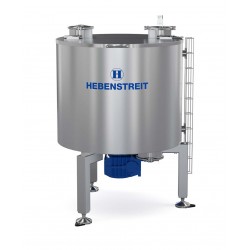Vegan products
Vegan products are products that do not contain any animal products or byproducts and are made entirely from plant-based ingredients. Here are some common examples of vegan products:
Plant-based milk alternatives (such as almond, soy, or oat milk) that can be used in place of dairy milk.
Meat alternatives made from plant-based proteins, such as tofu, tempeh, and seitan.
Vegan cheese alternatives made from nuts or soy.
Vegan butter and margarine made from plant-based oils.
Vegan mayonnaise made from plant-based ingredients like aquafaba or soy milk.
Plant-based protein powders made from pea, rice, or hemp protein.
Vegan desserts, such as cakes, cookies, and ice cream, made with plant-based ingredients like coconut milk or almond flour.
These are just a few examples, and there are many more vegan products available in the market today.
Producing vegan food can differ from traditional food production in several ways:
Ingredient selection: Vegan products rely solely on plant-based ingredients, which means that ingredient selection is more limited compared to traditional food products that may include animal-derived ingredients. This requires manufacturers to be more creative in their ingredient selection and recipe development to achieve the desired flavour and texture.
Processing techniques: Traditional food products often rely on animal-derived ingredients and processing techniques to achieve desired flavours and textures. Vegan food production requires different processing techniques, such as using plant-based protein sources and vegetable oils to replace animal-derived ingredients.
Nutritional profile: Vegan products must be formulated to provide the necessary macronutrients and micronutrients without relying on animal-derived sources. This may require the addition of certain vitamins, minerals, and amino acids to ensure that the product is nutritionally complete.
Allergen considerations: Vegan products may still contain allergens such as nuts, soy, or gluten, which requires manufacturers to carefully consider allergen control during production to avoid cross-contamination.
Labeling: Vegan products must be clearly labeled as such to appeal to consumers seeking plant-based options, and to avoid confusion or mislabeling.
By taking these factors into account, manufacturers can produce high-quality vegan products that appeal to a growing market of consumers seeking plant-based options.
In general, the equipment used to produce vegan products is similar to that used for traditional food production. However, certain types of vegan products may require specialized equipment, depending on the ingredients and processing methods used. For example:
- Meat substitutes: Plant-based meat substitutes, such as tofu, seitan, and tempeh, may require specialized equipment for their production, such as coagulators, extruders, and fermentation tanks.
- Dairy substitutes: Plant-based dairy substitutes, such as almond milk or vegan cheese, may require specialized equipment such as blenders, mixers, and homogenizers.
- Baking: Vegan baked goods may require specialized equipment such as dough mixers, proofing ovens, and baking ovens.
- High-pressure processing: Some vegan products, such as plant-based meat alternatives, may require high-pressure processing equipment to achieve a meat-like texture.
The equipment needed to produce vegan products will depend on the specific type of product being made and the processing methods used. However, many vegan products can be produced using standard food processing equipment, such as mixing tanks, blenders, and filling machines

 English
English
 Deutsch
Deutsch
 Français
Français
 Español
Español
 Italiano
Italiano
 Português PT
Português PT











